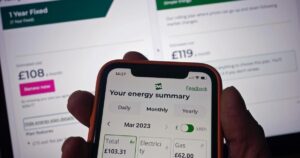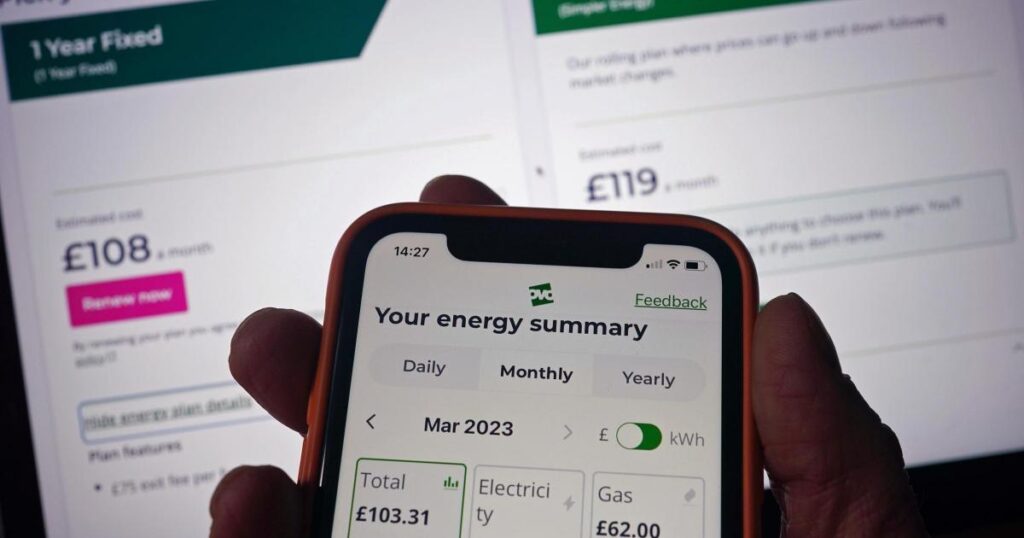Consumers should submit readings before midnight on June 30 to avoid being overcharged, and to ensure that smart meters are working properly.
Accurate readings prevent suppliers from estimating usage and applying previously higher prices to energy used after June 30, as Ofgem resets the cap on what suppliers can charge every three months.
The latest change from £1,849 to a lower rate of £1,720 on July 1 represents a 7% drop, with average annual bills falling by around £122.
Bad news! Ofgem’s energy Price Cap that dictates the rate 2/3 homes in Eng, Scot & Wales pay, is now predicted to rise even more than before.
I’ve knocked up this table showing today’s new average predictions (from 3 big firms) for the Cap for someone on supposed ‘typical use’;… pic.twitter.com/hzbpDIwNET
— Martin Lewis (@MartinSLewis) June 24, 2025
However, this is still £582 more than households were paying before the energy crisis began in autumn 2021.
Advice Direct Scotland, a charity which runs the national energy advice service is among charities calling for a “longer-term solution to the scourge of fuel poverty” with a UK-wide social energy tariff, to support low-income households which would automatically place the most vulnerable people on cheaper deals.
It said that anyone unable to submit readings by June 30 should do so as close to the date as possible and advised taking a photo of the meter in case of disputes, and suggested checking for more favourable tariffs.
The next price cap update will be announced by Ofgem in August, and many people are still struggling with record levels of debt.
More on energy bills
Conor Forbes, policy director at Advice Direct Scotland, says: “Lower gas and electricity prices will come as a relief for households, but bills remain significantly higher than they were before the energy crisis began.
“It’s important to submit meter readings before the new price cap comes into force, to prevent being overcharged.
“For extra peace of mind, take a dated photo of the meter. If you have a smart meter, make sure it’s working.
“People can also take practical action by examining their bills, finding out how much they are paying, and checking if there are cheaper options available with other suppliers.
“Struggling customers should know they do not have to suffer in silence. Our expert team is on hand for anyone who needs help, no matter their circumstances.
“However, a longer-term solution to the scourge of fuel poverty is a UK-wide social energy tariff, which would automatically put vulnerable people on the cheapest deals.”
Ofgem latest debt figures signal that the UK’s energy affordability crisis is nearing breaking point
Household energy debt has reached alarming levels, underscoring just how much pressure both consumers and suppliers are under.
Overall arrears remain alarmingly high, with 75% of the total debt having no repayment plan in place. The average debt per customer is £1,200, exacerbating an already pressurised market and making it increasingly difficult for both customers and suppliers to manage rising costs.
“Today’s figures from Ofgem show that household energy debt has continued to rise, with an increase of £300m in Q1 of 2025, having now grown for ten consecutive quarters,” says Matt Turner-Tait, Senior Manager at specialist Energy & Utilities consultancy, BFY Group.
“There have been some well-intended attempts by the government and regulatory bodies to relieve the issue – such as the Warm Home Discount becoming accessible to double the number of households previously, or Ofgem’s prepayment meter review prompting suppliers to return £18.6m to customers through compensation and debt write offs.
“However, these measures don’t provide the much-needed long term relief that customers need.
“Since the covid crisis, the UK retains the most expensive electricity bills out of 25 other European countries – which highlights the need for urgent, sustainable action at policy level. Suppliers can provide some relief to customers through early engagement, accessible advice, and smarter tools for managing bills – this will help customers retain some financial stability.”
Source link
[Featured]
[Just In]





